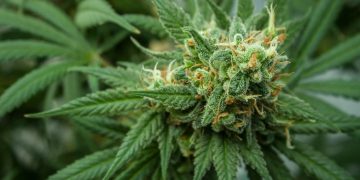[ad_1]
In recent years, the CBD industry has experienced a booming growth, attracting consumers, entrepreneurs, and investors alike. With the increasing popularity of CBD products, it is crucial to understand the regulations surrounding this industry to navigate the green rush successfully. This article will delve into the intricacies of CBD regulations, providing valuable insights for businesses and individuals looking to capitalize on this growing market.
The Basics of CBD Regulations
Before diving into the specifics of CBD regulations, it is essential to understand the basics of CBD itself. CBD, short for cannabidiol, is a naturally occurring compound found in the cannabis plant. Unlike its counterpart, THC, CBD is non-psychoactive, meaning it does not produce a “high” effect commonly associated with marijuana use. While CBD can be derived from both hemp and marijuana plants, the majority of CBD products available on the market are sourced from hemp due to its low THC content.
Legality of CBD
The legality of CBD is a complex issue that varies depending on the source of the CBD and its THC content. In December 2018, the Agriculture Improvement Act, also known as the 2018 Farm Bill, was signed into law, legalizing the cultivation and sale of hemp-derived CBD products. According to this legislation, hemp is defined as cannabis plants containing less than 0.3% THC by dry weight. Therefore, CBD products derived from hemp are considered legal at the federal level as long as they comply with this THC threshold.
On the other hand, marijuana-derived CBD products are subject to different regulations due to their higher THC content. While some states have legalized marijuana for both medical and recreational use, it is essential to consult individual state laws to determine the legality of marijuana-derived CBD products in a specific location.
Regulatory Agencies
Several regulatory agencies oversee the production, distribution, and sale of CBD products in the United States. The Food and Drug Administration (FDA) is responsible for regulating CBD products intended for human consumption, such as CBD oils, edibles, and supplements. While the FDA has approved one CBD-based prescription drug, Epidiolex, for the treatment of epilepsy, the agency has not yet established clear regulations for over-the-counter CBD products.
The U.S. Department of Agriculture (USDA) regulates the cultivation of hemp and the production of hemp-derived CBD products. Under the 2018 Farm Bill, the USDA is tasked with developing a regulatory framework for hemp production, including licensing requirements, testing protocols, and quality control standards. Additionally, state departments of agriculture play a crucial role in overseeing hemp cultivation within their respective jurisdictions.
The Drug Enforcement Administration (DEA) enforces federal drug laws and monitors the distribution of controlled substances, including marijuana and THC-containing cannabis products. While the DEA does not regulate hemp-derived CBD products with less than 0.3% THC, the agency continues to classify marijuana as a Schedule I controlled substance, imposing strict regulations on its cultivation, distribution, and use.
Challenges and Opportunities in the CBD Industry
The rapidly evolving regulatory landscape poses both challenges and opportunities for businesses operating in the CBD industry. While the legalization of hemp-derived CBD products has opened up new markets and opportunities for growth, regulatory uncertainties and inconsistencies create barriers to entry and hinder industry expansion.
Quality Control and Consumer Safety
One of the primary concerns in the CBD industry is ensuring product quality and consumer safety. Due to the lack of standardized regulations, some CBD products on the market may be mislabeled, contaminated, or ineffective. To address these issues, industry stakeholders, including manufacturers, retailers, and regulatory agencies, must collaborate to establish comprehensive quality control measures and enforce strict product testing requirements.
Third-party testing labs play a crucial role in verifying the potency, purity, and safety of CBD products. By conducting laboratory tests on CBD samples, these independent facilities can identify potential contaminants, such as pesticides, heavy metals, and microbial pathogens, and ensure that products meet quality standards. Consumers should look for CBD products that have been tested by reputable labs and display a Certificate of Analysis (COA) to verify their quality and potency.
Compliance with State and Federal Laws
Navigating the complex web of state and federal CBD regulations can be challenging for businesses seeking to operate legally and ethically. While the 2018 Farm Bill legalized hemp-derived CBD products at the federal level, states retain the authority to regulate the cultivation, processing, and sale of CBD within their borders. As a result, businesses must comply with both federal and state laws to avoid potential legal repercussions and ensure long-term sustainability.
To mitigate regulatory risks, businesses should stay informed about changes in CBD laws and regulations at the federal and state levels. By consulting legal experts, industry associations, and regulatory agencies, businesses can navigate the evolving regulatory landscape and proactively address compliance issues. Additionally, businesses should prioritize transparency, product traceability, and consumer education to build trust and credibility in the marketplace.
Future Outlook and Industry Trends
Despite the challenges and uncertainties facing the CBD industry, the future outlook remains promising, with continued growth and innovation on the horizon. As consumer demand for CBD products continues to rise, businesses are exploring new product categories, delivery formats, and market segments to meet evolving preferences and needs.
Expansion of Product Offerings
In response to increasing demand for CBD products, manufacturers are expanding their product offerings to include a wide range of formulations, such as tinctures, topicals, capsules, and gummies. Additionally, businesses are developing CBD-infused beverages, skincare products, pet supplies, and wellness supplements to cater to diverse consumer preferences and lifestyle choices.
To differentiate themselves in a competitive market, businesses are focusing on product innovation, ingredient sourcing, and branding strategies to create unique value propositions and attract target consumers. By leveraging market research, consumer insights, and industry trends, businesses can develop high-quality CBD products that resonate with their target audience and drive customer loyalty.
Emergence of Regulatory Standards
As the CBD industry matures and regulatory frameworks evolve, industry stakeholders are working collaboratively to establish unified standards and best practices for product manufacturing, labeling, and marketing. Trade associations, advocacy groups, and regulatory agencies are engaging in dialogue to address regulatory gaps, promote industry transparency, and protect consumer interests.
By advocating for clear and consistent regulations, businesses can contribute to the long-term sustainability and credibility of the CBD industry. Through industry self-regulation, voluntary compliance programs, and certification initiatives, businesses can demonstrate their commitment to quality, safety, and integrity while building trust with consumers and regulatory authorities.
Integration of Technology and Data Analytics
With the advancement of technology and data analytics, businesses are leveraging digital tools and platforms to optimize production processes, streamline supply chain operations, and enhance customer engagement. From seed to sale, businesses are implementing track-and-trace systems, inventory management software, and e-commerce solutions to monitor product quality, ensure compliance, and deliver personalized experiences to consumers.
By harnessing the power of data analytics, businesses can gain valuable insights into consumer behavior, market trends, and product performance. Through data-driven decision-making, businesses can identify growth opportunities, mitigate risks, and drive operational efficiencies in a rapidly evolving industry landscape.
Conclusion
In conclusion, navigating the green rush of the CBD industry requires a comprehensive understanding of the regulatory environment, market dynamics, and consumer preferences. By staying informed about federal and state CBD regulations, businesses can mitigate risks, ensure compliance, and capitalize on growth opportunities in this burgeoning industry. With a focus on quality control, transparency, and innovation, businesses can build a strong foundation for long-term success and contribute to the sustainable growth of the CBD industry.
[ad_2]






























































